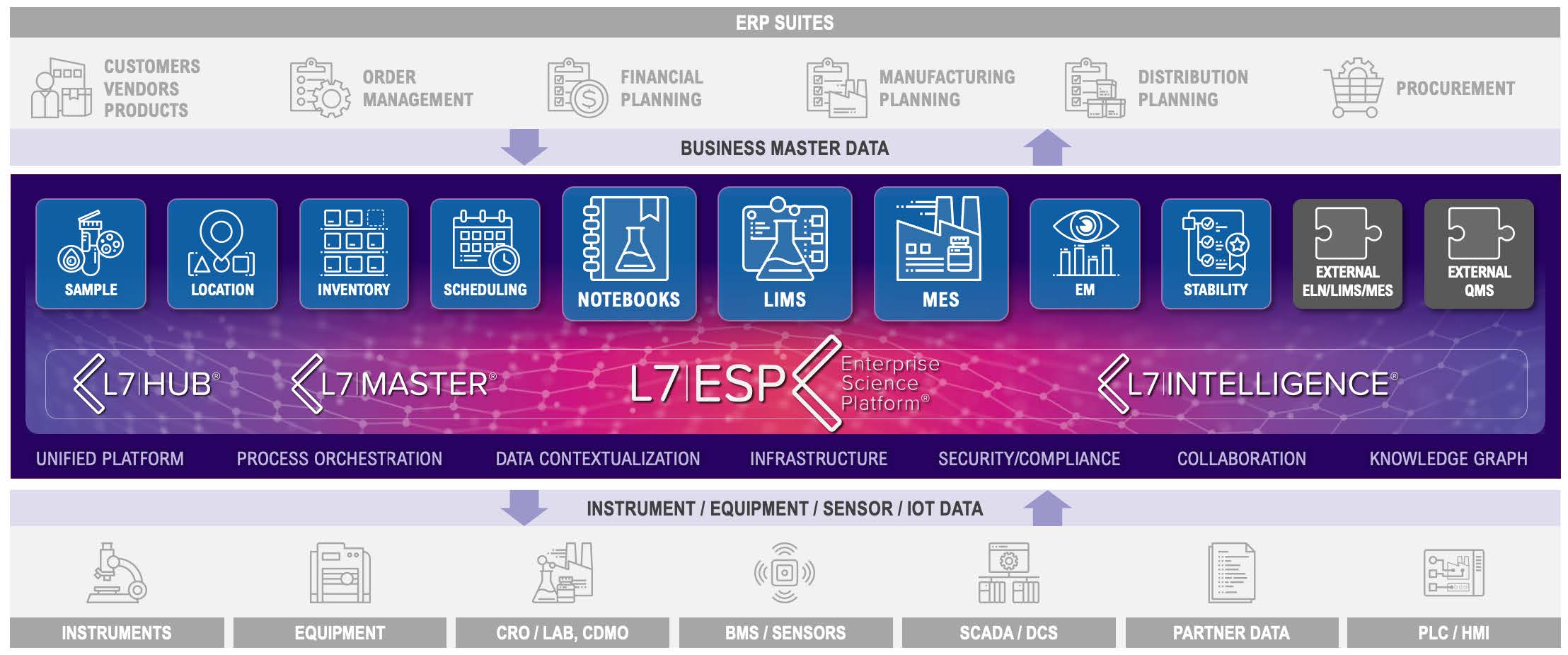Getting Started
L7|ESP: A unified platform that contextualizes data and eliminates business silos
L7|ESP Platform Tour
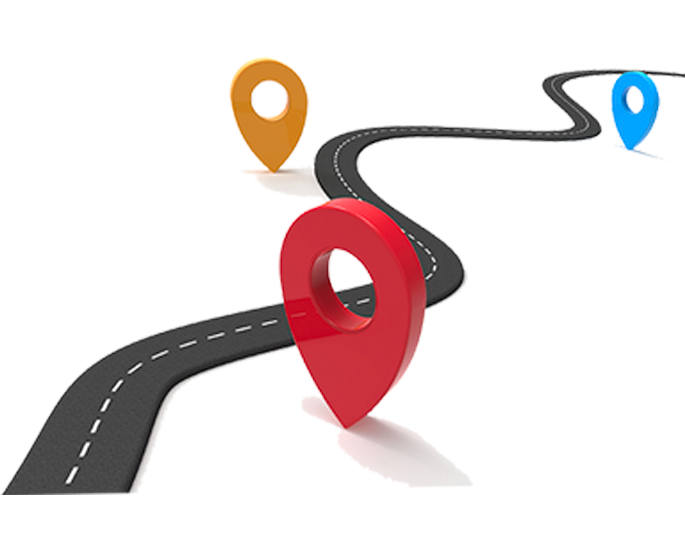 | Which offerings are right for your team? Autonomy with L7|ESP comes from possessing robust in-house skills across distinct platform roles. This means aligning your team to the right learning at the right time. Review these suggested learning paths or talk to our team about devising a plan that works for you. |
Modeling | Developing | Deploying | |
|---|---|---|---|
Description | Mastering how to model data and workflows This skill track enables “super users” to model data and workflows using a combination of no-code and low-code techniques that ultimately determine how end-users execute their work in L7|ESP. | Mastering how to programmatically extend and connect L7|ESP In this track, “developers” will attain the knowledge and skills needed to master code-level application engineering within L7|ESP. Through real-world examples and hands-on exercises, learners will build and test the components necessary to extend the power of L7|ESP and tailor it for their organization’s needs. | Mastering how to install, setup and tune L7|ESP This skill track enables DevOps teams and L7|ESP administrators to deploy L7|ESP in their environments and help optimize its performance. |
Pre-requisite skills | Familiarity with the types of real-world data and processes inherent in scientific operations | Proficiency with developing web applications, including a working knowledge of Python and Javascript | Linux command line experience, some experience and familiarity with Docker, and understanding of application containers |
Skill Path |
|
|
|
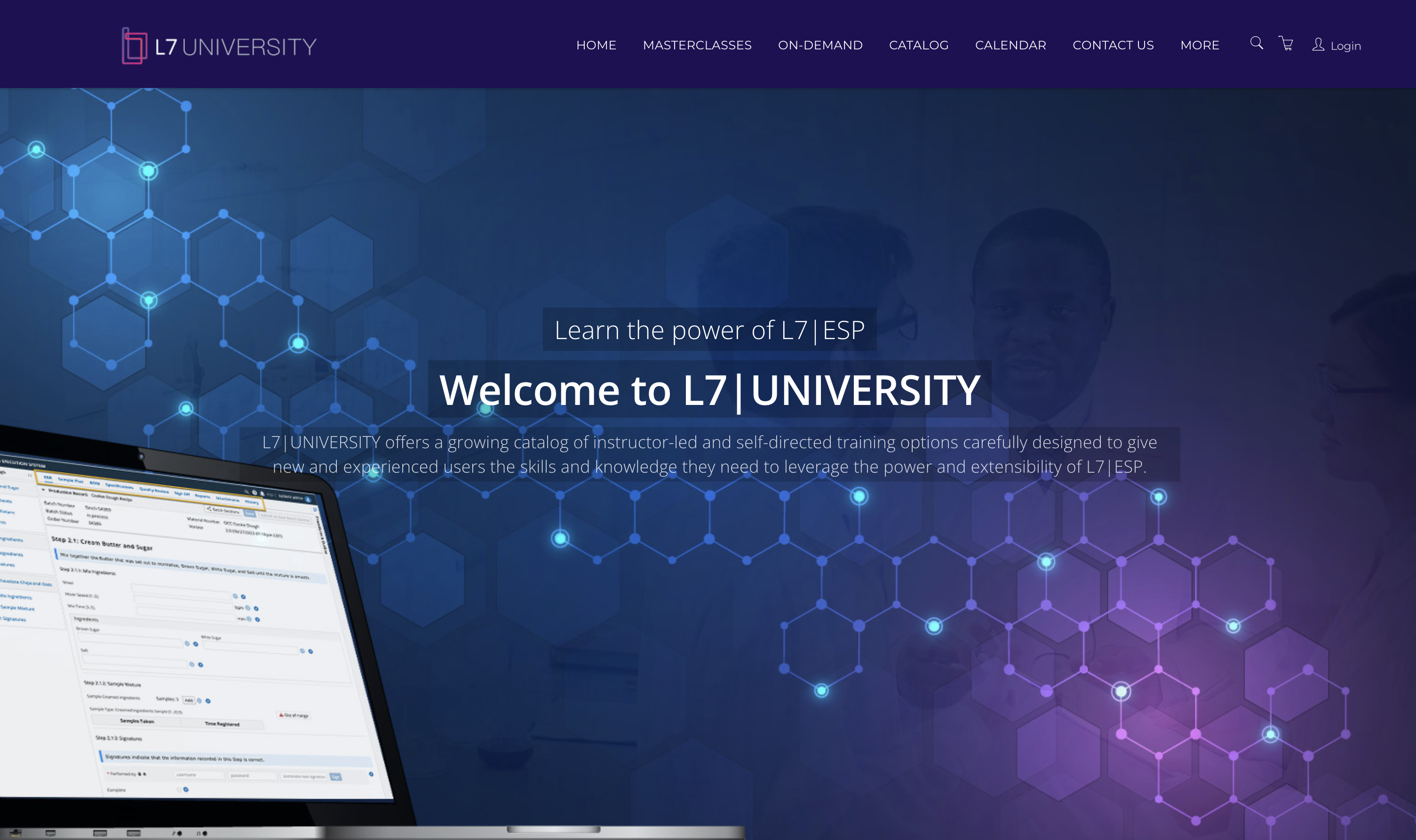 | L7 University offers a growing catalog of instructor-led and self-directed training options carefully designed to give new and experienced users the skills and knowledge they need to leverage the power and extensibility of L7|ESP. |
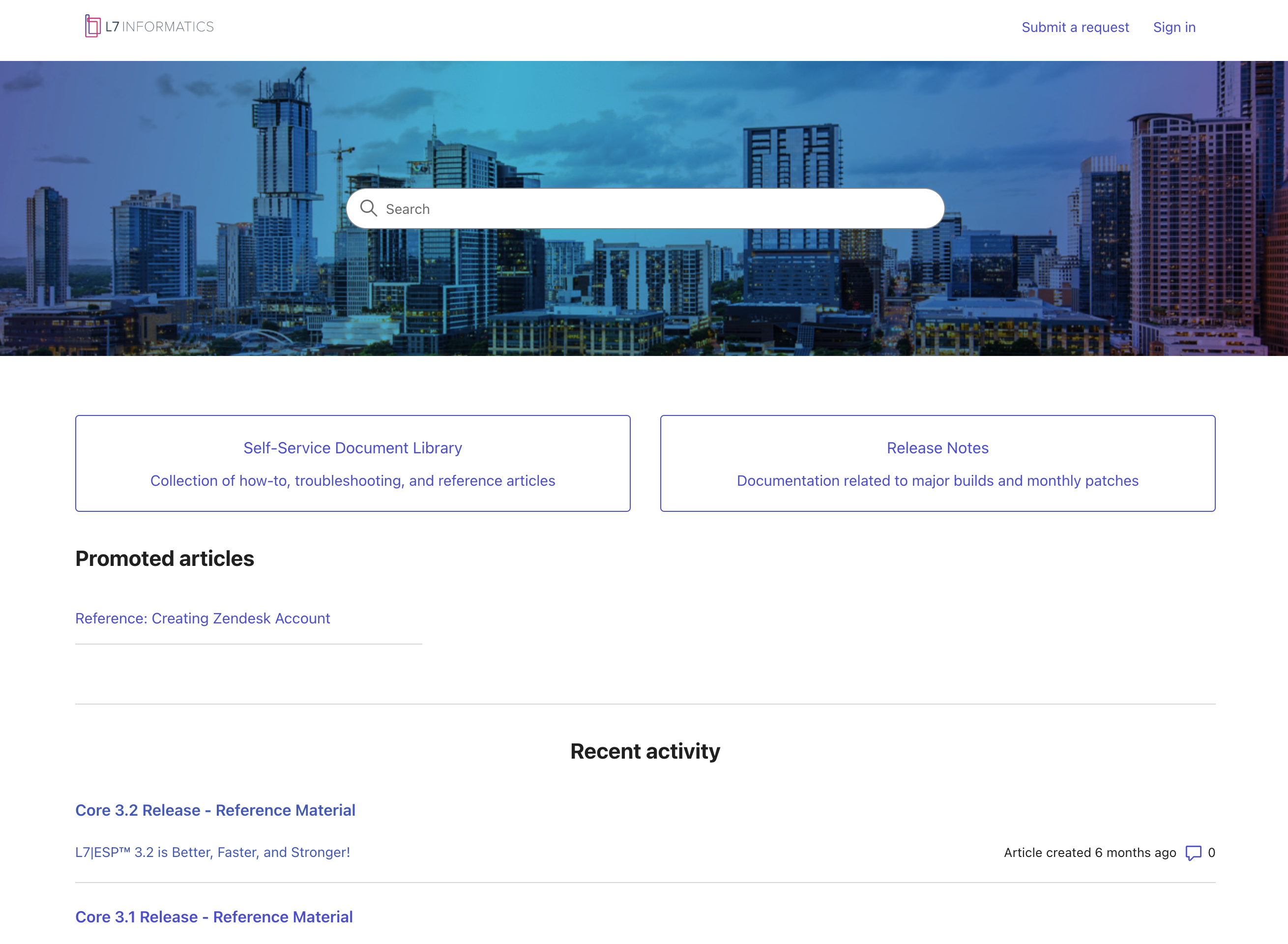 | L7 Support - Submit ticket requests and search knowledge base articles. |
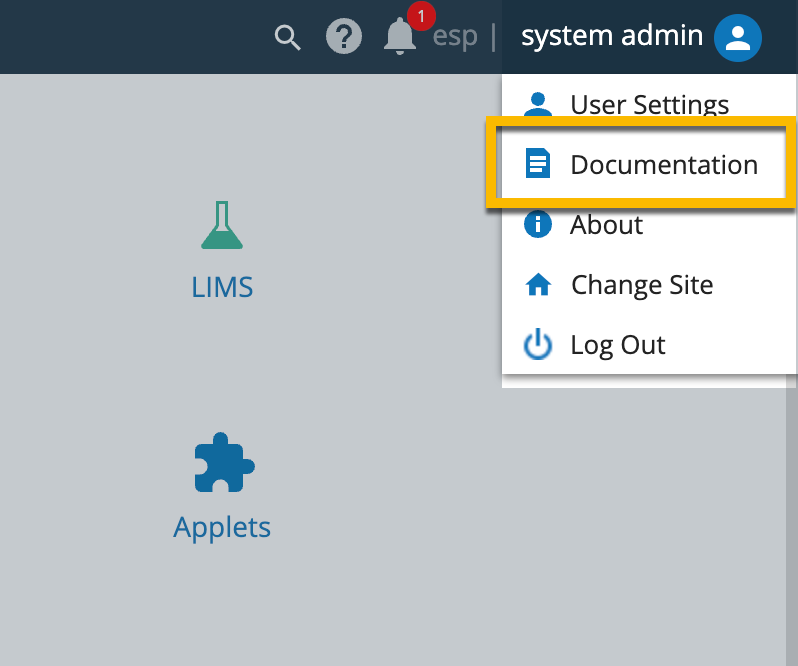 | L7|ESP User Guide and Context Help within L7|ESP |
